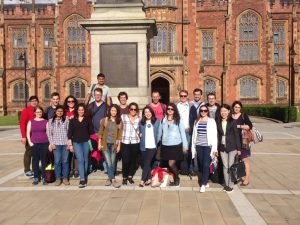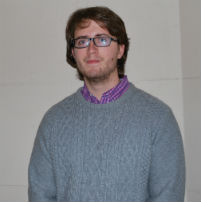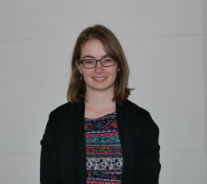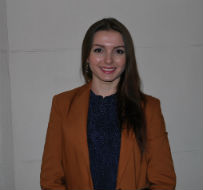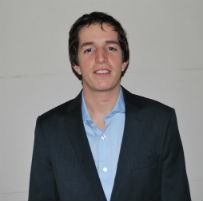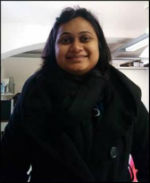Meet the Researchers – Yi Zhao
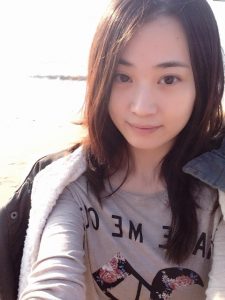 I was born and raised in a city in the northwest of China called Lanzhou. After I received my bachelor degree in ecology from Lanzhou University, I moved to Hong Kong to start my master study in environmental engineering and management in Hong Kong University of Science & Technology. And after I finished my master study, I moved to Xiamen, China, worked as research assistant in Institute of Urban Environment, Chinese Academy of Sciences.
Now I’m here in Copenhagen, employed as a PhD fellow in Department of Plant and Environmental Science, University of Copenhagen. The aim of my PhD project is to design an arsenic smartchip with high-throughput qPCR system and apply this new approach to investigate the arsenic genes in the contaminated soil and test different remediation.
It was a long journey for me to come to Copenhagen, however, the happiest country didn’t fail me. I enjoy the calm and relaxing environment here in Copenhagen very much. Beside academic work, I normally spend time on yoga and being with friends. Although moving to a different country with totally different culture can be a big challenge for me, but I am sure there are more exciting sides waiting for me.
I was born and raised in a city in the northwest of China called Lanzhou. After I received my bachelor degree in ecology from Lanzhou University, I moved to Hong Kong to start my master study in environmental engineering and management in Hong Kong University of Science & Technology. And after I finished my master study, I moved to Xiamen, China, worked as research assistant in Institute of Urban Environment, Chinese Academy of Sciences.
Now I’m here in Copenhagen, employed as a PhD fellow in Department of Plant and Environmental Science, University of Copenhagen. The aim of my PhD project is to design an arsenic smartchip with high-throughput qPCR system and apply this new approach to investigate the arsenic genes in the contaminated soil and test different remediation.
It was a long journey for me to come to Copenhagen, however, the happiest country didn’t fail me. I enjoy the calm and relaxing environment here in Copenhagen very much. Beside academic work, I normally spend time on yoga and being with friends. Although moving to a different country with totally different culture can be a big challenge for me, but I am sure there are more exciting sides waiting for me.
Meet the Researchers – Seyedmorteza Seyedpour
I was born in Iran and earned my BSc. in heat and fluid mechanics, and M.Sc. in Biomechanical Engineering from Urmia University and Iran University of Science and Technology respectively. After the M.Sc. graduation, I began to work as a research assistant at Medical Nanotechnology and Tissue Engineering Research Centre at Shahid Beheshti University of Medical Sciences for two and a half years. In addition, as collaboration, I did many researches at Motor and Propulsion Laboratory of Tarbiat Modares University on oxygenate additive on gasoline. Meanwhile, I was involved in a number of projects leading to some publications in biomechanics and oxygenate additive field. In addition to the academic work I was a member of UNESCO Chair for Human Rights, Peace, and Democracy at Shahid Beheshti Univesity in Iran.
Currently I am a PhD candidate, as a part of the REMEDIATE project, at chair of Mechanic, Structural Analysis, Dynamic at TU Dortmund University under supervision of Univ.-Prof. Dr.-Ing. Tim Ricken. The main goal of my project is to simulate remediation process of contaminated site in frame of Porous media Theory.
I am interested in watching football (I am a fan of Bayern München, Real Madrid, and AC Milan), cooking, and travelling.
Meet the Researchers – Ricardo Costeira
Born and raised in the vibrant and youthful city of Braga, Portugal, I graduated from University of Minho in July 2012 with a Bachelors in Applied Biology. Soon after, I proceeded to do my Masters in that same university, graduating in January 2015 with a Masters in Molecular Genetics and a written thesis on the genomic variability of Pseudomonas aeruginosa.
After almost six years studying and researching in one Portugal’s top universities, I decided it was time for a change of scenery. That is when REMEDIATE came along and took me all the way up to Northern Ireland. In October 2015 I joined Queen’s University Belfast to do my PhD, eager for exciting times experiencing new cultures and learning new concepts.
My role in REMEDIATE is of an Early Stage Researcher and my PhD path is focused on studying the microbial and viral diversity found at contaminated sites, identifying events of horizontal gene transfer mediated by bacteriophages. To do so I will be using advanced molecular biology techniques, comparative metagenomics and comparative metatranscriptomics.
Despite Belfast being a rainy and cloudy city, the locals were proven to be very warm and welcoming, making living abroad much easier than I expected. Plus, Irish folks know how to have fun and the true meaning of a good banter!
Northern Ireland is a country of exceptional beauty and I cannot wait to drive around in spring and treat my eyes to the stunning coastal landscapes.
Meet the Researchers – Peter Brennan
I am from Boston, MA. I studied Biotechnology in Dublin City University. I was a technician in Merck Millipore’s protein bioscience lab, and as a Research Associate in Illumina’s Genomic Services department. Now I’m a PhD researcher in DCU, investigating microbial fuel cell biosensors to monitor bioremediation in subsurface environments in Dublin City University. DCU is a great university and is named one of the Top Young Universities in the QS University Rankings. Dublin’s a cool city, and I love it here. I’m very excited to be a part of the Remediate project.
Meet the Researchers – Coren Pulleyblank
I am currently a PhD candidate in the School of Chemical Sciences at Dublin City University. Before arriving in Dublin, I completed a B.Sc. in Geography at York University in Toronto, Canada. There, I became fascinated with the soil and water systems and environmental research that spurred me to join the Remediate project. In 2014, I was lucky to have the opportunity to spend ten weeks in the Canadian subarctic. Apart from confirming my love of fieldwork, beluga whales, and the aurora, this trip formed the basis of my thesis which investigated how changing wind patterns associated with climate change might affect the availability of nutrients to pond life in the ecologically sensitive north. Other recent work has included analysis of glacial deposits in southern Ontario, and investigation of soil samples from Mont Viso to understand soil development processes, and the archaeological significance of the area. As a certified nerd, I also hold B.A. in Classics and the History of Science and Technology from the University of King’s College in Halifax, Canada.
Since I’ve arrived in Dublin, I’ve been working on understanding how to optimize composting-based bioremediation strategies for degrading a class of compounds called polycyclic aromatic hydrocarbons. When I’m not in the lab, I’m usually exploring my new city, trying not to get hit by cars driving on the wrong side of the road, testing out the limits of my new raincoat, and planning my next trip to “somewhere in Europe”. It still amazes me how close everything is here!
Meet the Researchers – Tatiana Cocerva
Born in the countryside in Moldova, I spent a happy childhood, discovering and exploring the wonders of nature. Being very curious and willing to find an explanation of everything surrounding me, I chose to do a Bachelor of Science at University of Bucharest in Romania. After graduation, I decided to accomplish my biggest dream in doing my master studies in France being accepted at University Paris-Est Marne-la-Vallée (UPEM). After my graduation, I worked for 5 months in the laboratory of environmental chemistry at UPEM, a time when I discovered my passion for research. The results of this experience have been published in Journal of Hazardous Materials.
Currently, I’m an Early Stage Researcher at Queen’s University Belfast, one of the most famous universities in the UK and worldwide recognition for its research intensity. Belfast is a nice and quiet city with many sightseeing such the Titanic Shipyards, Ulster Museum with a lovely botanical garden on its right side, Stormont Parliament Buildings and the fans of Game of Thrones have the opportunity to visit the studio and locations where the movie was shot. Don’t worry if you get lost, the local people are very friendly and willing to help and guide you at any time.
This peaceful city contributes to my good mood and is a perfect place to undertake research keeping your mind calm and clear. So, I enjoy every day my role in the REMEDIATE Project where I have to assess the oral bioaccessibility of contaminants in urban environments and investigate how the results are affected by sampling technique and contaminant source.
In my spare time, I enjoy cooking, I love scuba diving, especially in the Red Sea and I have always at home a suitcase ready for travels. Being passionate about foreign languages, now I’m learning German which will be the 5th language spoken, but not the last one.
Meet the Researchers – Diogo Santos
There is a saying which goes, “Understanding means fewer missteps, and missteps cost a fortune”. By understanding, evaluating and ranking the direct and indirect effects of remediation activities on the environment, their performance can be enhanced and thus, additional costs avoided.
My research goal is to support the selection of remediation technologies using life cycle tools. During my master degree in environmental engineering, I was able to broaden my knowledge in life cycle assessment and its integration in methodologies for sustainable decision-making.
Currently as a researcher in SUPREN GmbH, a consulting engineering company based in Germany, I am glad to be working in an international environment. I adapted very well; occasionally drinking crafted beer and watching football games also helped.
Reach out if you want to talk about my research or Portuguese gastronomy.
Meet the Researchers – Neha Mehta
Celebrating Diwali with Crackers of Laughter !!!
Coming out of India for studies to a place so far was something that was unimaginable for me and my family even after I arrived in Torino. Although I have had lived in different parts of India but still I had never celebrated Diwali out of my home. I used to go to my parents on Diwali irrespective of anything. And they also knew that I would be with them cleaning home, making sweets at home, sharing household work with my mother, lighting Diyas, going to temples and squares near to my home to light Lamp there and planning all nitti gritties of the celebration.
But this time it was different, they had bid me good bye just before ten days of Diwali knowing that I am not going to celebrate with them. And here I was in a city which has everything to offer- parks, piazzas and bars still there was something that my eyes kept on searching. There was something that told that I was out of India. I was somehow not at peace with myself. I was settling in my work life partly because being a Researcher was a dream that I had from a long time and also because I had colleagues who were easy to get along with. But life outside my lab was becoming tough with every passing day. I started missing my home more and more as the days passed. I dreaded being lonely on evening of Diwali, being engulfed in the darkness of my own sadness.
And then finally the day when Lord Rama returned to Ayodhya in the History arrived. Everyone was wishing me Happy Diwali on WhatsApp, Viber, Facebook and through variety of Forums while I was working in my Lab on a presentation with my tutor. So the day passed without much difficulty, discussing with my guide. In the evening after my work when I went to kitchen of the University Residence to prepare Coffee I met another student. I almost burst out with tears in my eyes telling her that today is Diwali and I am here. To my surprise she knew about Diwali as she was an exchange student from UK and knew many Indians there. While having conversation we decided to call other students also and to have dinner together.
When we were preparing dinner together I came to know that everyone belonged to different country and culture. Yet all of us were gaily, sharing recipes of food, talking about Shahrukh khan, Katrina Kaif ( yes they knew about Bollywood also ) one girl from Morocco was a big fan of Shahrukh Khan and told me that she watches every movie of Shahrukh Khan and has watched DDLJ for incalculable number of times. We were chatting about reason behind Diwali celebration, Manipal University, about life in Europe and Asia in general, conversing about history of Italy, contributing our own thoughts on different religions. Soon Diwali was full of Crackers of Laughter, lights of smile on our faces and radiating eyes and good food on our plates. Barriers between Jain, Muslims and Christians were meaningless and there was unity in diversity. All of us were together like different spices in food making it delicious with every next bite.
That moment I started loving Torino with all of my heart for giving me an opportunity to meet such nice people and stopped my search. I started being happy after lab also and meeting new people. Every day after that was livable. And so my own Vanvas ended with Diwali.
Meet the Researchers – Nenad Stojanovic
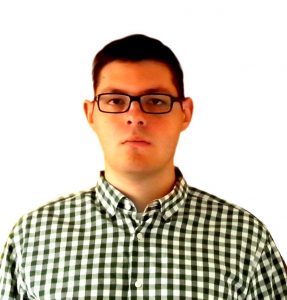
I am a PhD student at the University Duisburg-Essen. In the past I studied chemistry at the University of Novi Sad [Serbia]. After graduating, I became an employee of Institute of Field and Vegetable Crops in Novi Sad. Through working there I learned many things about chromatographic analysis of environmental samples, so in order to learn even more, I applied for the Remediate project.
Currently, under Prof. Dr. Schmidt’s supervision I am trying to develop and apply novel methods for compound specific stable isotope analysis (CSIA) of environmental samples. CSIA is being used for wide range of applications. From environmental analysis, through determination of origin and/or authenticities of pharmaceutical and food products, doping control, to reaction mechanism study etc. However, the need for perfect separation of analyzed components can sometimes be common obstacle in all of these fields. Therefore my interest is to study more thoroughly the use of solvent-free extraction techniques (SPME, ITEX, P&T, HS) and multidimensional gas chromatography in order to develop more powerful methods and finally, to test them on environment samples.
Chair of Instrumental Analytical Chemistry, of which I am part of, is not devoted just to CSIA and chromatographic analysis. It also unites research in ion mobility spectrometry, advanced oxidation processes, phase-transfer processes at aqueous interfaces etc. into study of water and environment pollution.
The university itself is located in two cities, Duisburg and Essen, and it came to being through merger of two separate universities in 2003. Now, UDE is one of the youngest and one of the ten largest universities in Germany.
Although I usually tend to have high expectations in life, which often leaves me disappointed, after arriving in Germany things somehow turned out to be much better than I could ever expect. I hope this is not just temporary thing, and I hope this impression will last for a long time.
